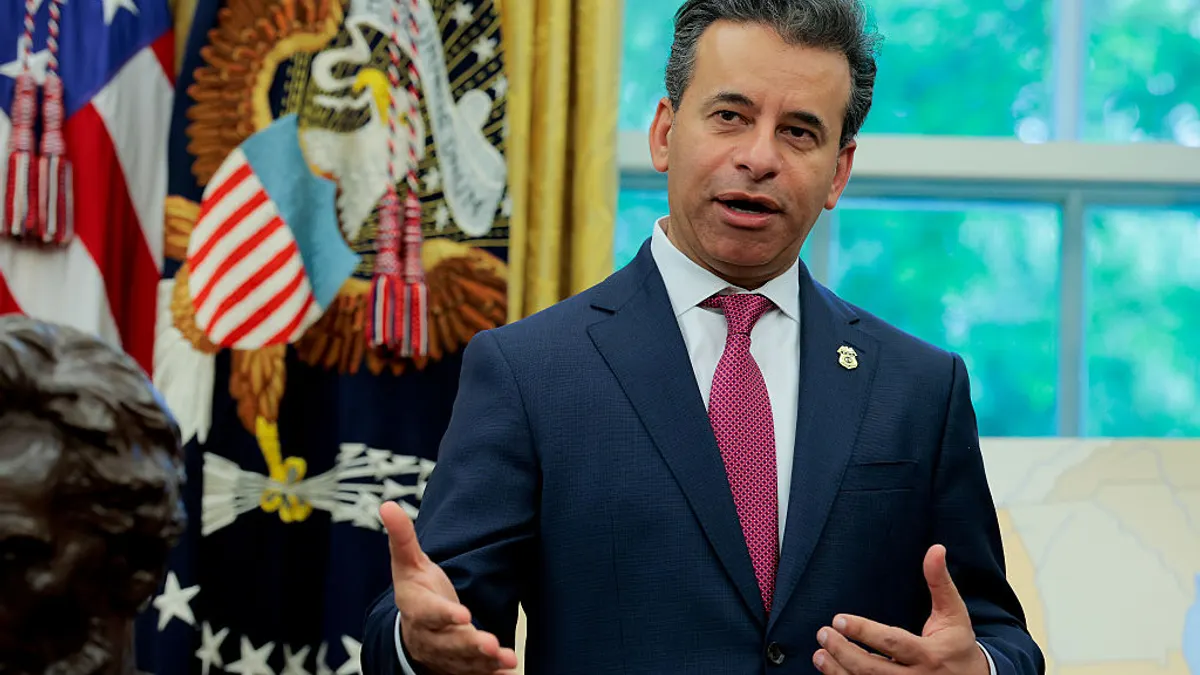Pharma leaders hoping for a friendlier merger environment after the Trump administration grabs the keys to the White House may be sorely disappointed. Once the president-elect is sworn in, the higher level of scrutiny from the Federal Trade Commission that ramped up under the Biden administration isn’t likely to ease up, according to David Balto, an antitrust lawyer and former assistant director of policy and evaluation at the FTC.
In fact, the regulator isn’t likely to drop existing actions and could even turn up the heat in some areas.
“Anti-corruption enforcers pride themselves on making sure that antitrust is not a political sport, that there aren't significant changes in enforcement when administrations change,” Balto said. “There's an unwritten rule that the new administration continues to pursue whatever is pending at the time. They don't drop litigation or investigations just because of administration changes.”
When the Biden administration transitions out this winter, one of the two current Republican FTC commissioners will likely become interim chairman until a permanent replacement is chosen, Balto said. Under Biden-appointed FTC chair Lina Khan, the agency has received bipartisan support for antitrust enforcement actions and more aggressively investigated mergers, including Amgen’s $28 billion purchase of Horizon Therapeutics.
FTC regulators have also zeroed in on the high-profile proposed deal between Novo Holdings and contract manufacturer Catalent, which aims to help the drugmaker keep pace with surging demand for its wildly popular GLP-1 diabetes and weight loss drugs, Ozempic and Wegovy. The FTC wants more details from the companies about the proposed $16.5 billion buy that would give Novo Holdings 50 manufacturing sites to produce small molecules, biologics, and cell and gene therapies.
Novo won’t likely see its fortunes improve under the new board, Balto said.
“Typically, people think Republicans don't support vertical merger enforcement, but if they assume that they would be dead wrong,” Balto said. “The current [FTC] brought vertical merger cases on a bipartisan basis. They've gotten significant support from Republican commissioners when they tried to bring cases attacking vertical mergers.”
Shortly after Donald Trump’s election victory, some pharma leaders expressed optimism that pressure from the FTC could soon lessen.
“With regard to FTC, there’s a good chance that changing leadership there will be a positive for biotech,” Daphne Zohar, CEO of Seaport Therapeutics and previously head of PureTech Health, told BioPharma Dive in an email.
But the long-standing attitudes towards M&A portend continued scrutiny, not a pass, according to Balto.
A PBM crackdown?
The incoming administration may also be more aggressive in specific areas of the industry. One likely target is pharmacy benefit managers. Although the PBM industry maintains it’s crucial to keeping drug prices down, they’ve increasingly come under fire for appearing to do the opposite. The FTC recently issued a report calling PBMs “powerful middlemen inflating drug costs.”
“Typically, people think Republicans don't support vertical merger enforcement, but if they assume that they would be dead wrong.”

David Balto
Former assistant director of policy and evaluation, FTC
In September, the FTC sued three major PBMs — Caremark, Express Scripts and Optum — for allegedly jacking up insulin prices to boost profits. The previous Trump administration also made moves to rein in PBMs.
“Seventy million people lost sleep on election night, but the people who lost a lot of sleep are the people who run PBMs,” Balto said. “And the reason for that is that it was the Trump administration that changed the way that federal enforcers and Congress looked at the role of the PBM.”
In particular, the FTC took aim at rebate schemes by eliminating safe harbor protection for the deals under the anti-kickback statute. Enforcement of that final rule, however, was postponed until 2032 after the Congressional Budget Office warned the change would inflate insurance premiums, Balto said. But the incoming administration could revive enforcement.
“There are serious storm clouds for PBMs in a new Trump administration,” he said.
Orange book filings
The FTC will also likely keep its sights trained on companies that improperly list patents in the FDA catalog of Approved Drug Products with Therapeutic Equivalence Evaluations, commonly called the Orange Book.
And this enforcement area fits squarely in line with Republicans’ historic priorities, Balto said.
“From the Republican perspective, the most egregious form of monopoly power is monopoly power secured through the abuse of the regulatory system,” Balto said. “So, you should see the next administration not only continue Orange Book actions, but also look for the opportunities to bring other actions where pharmaceutical firms are abusing the regulatory process.”
Ultimately, it seems more likely that the FTC will stay close to its current course than to pivot.
“The Republicans, in some ways, will be even more aggressive against the pharmaceutical industry than the Democrats,” Balto said.


















